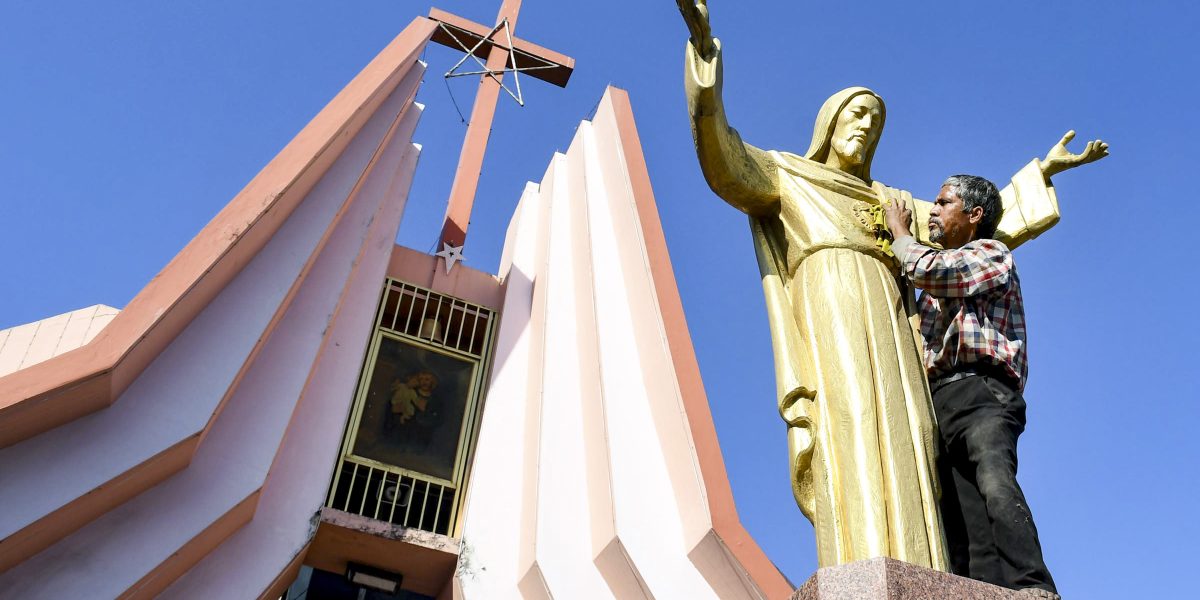
Rayhan Uddin / Middle East Eye
Police have been deployed on the streets of Leicester to deter clashes between groups of young men that have sharpened tensions between Hindus and Muslims in one of the UK‘s largest British-Indian communities.
The recent violence has been partly blamed on “far-right Hindutva groups”, including the Rashtriya Swayamsevak Sangh (RSS) paramilitary organisation, which have been accused of targeting Muslim residents and seeking to sow discord in a mixed community that has co-existed for decades.
Leicester is one of the most diverse cities in the UK, with people who identify as British Indians, both Hindu and Muslim, making up more than a quarter of the total population of 329,000, according to figures from the 2011 UK census.
At least 47 arrests have been made and two people were jailed in relation to the unrest, which the Muslim Council of Britain said followed a “series of provocations” from far-right Hindutva groups over a number of months. Leicestershire Police’s chief said arrests would continue for “several weeks if not months.”
How did Hindutva, a political ideology originating in the early 20th century under British colonial rule in India, come to impact social and religious cohesion in the English Midlands almost a century later?
Middle East Eye takes a look at the origins of the movement, its early affinity with European fascism, and how its paramilitary proponents came to dominate Indian politics and export their ideology across the globe.
What is Hindutva?
The term Hindutva was first coined in 1892 by Bengali scholar Chandranath Basu, to describe the state or quality of being Hindu, or “Hindu-ness”.
It took on its contemporary meaning, as that of a political ideal, in a 1923 essay by Indian activist Vinayak Damodar Savarkar.
In a paper titled “Hindutva: Who is a Hindu?” Savarkar, who described himself as an atheist, wrote that “Hindutva is not identical with what is vaguely indicated by the term Hinduism.”
He sought to separate the term from “religious dogma or creed,” and instead link the idea of Hinduism with that of ethnic, cultural and political identity.
Savarkar posited that to Hindus, India was both a “fatherland” and a “holy land”, distinguishing them from non-Hindus, for whom it was the former but not the latter.
“Their holy land is far off in Arabia or Palestine. Their mythology and god-men, ideas and heroes are not the children of this soil. Consequently their name and their outlook smack of a foreign origin,” he wrote.
This story was originally published in middleeasteye.net . Read the full story here





